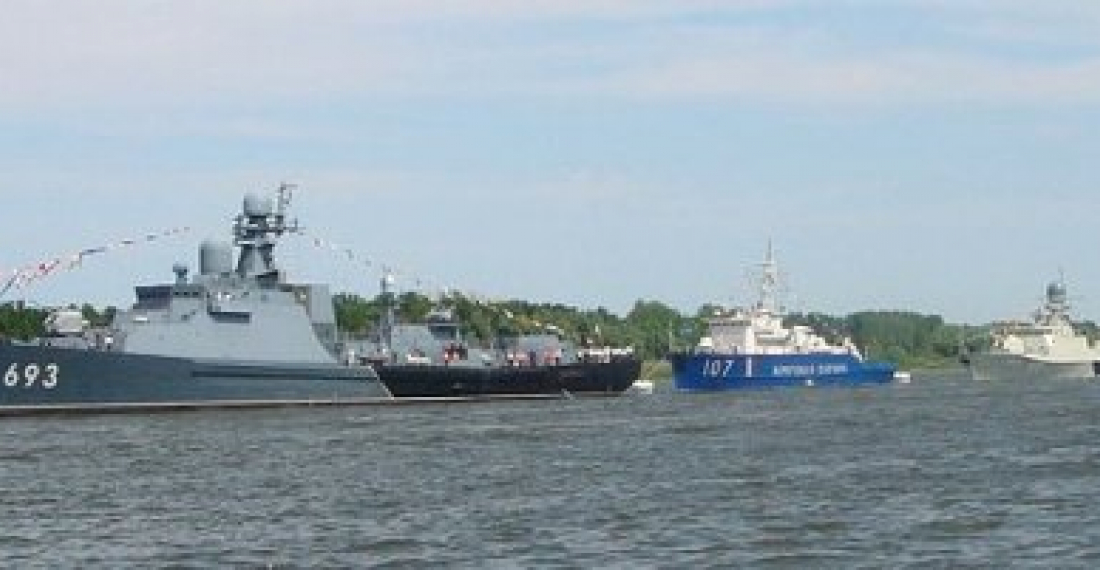The signing of a new convention between the Caspian Sea littoral countries appears to be imminent. But Emil Avdaliani in this op-ed says that contentious issues remain, and Russia and other countries are strengthening their military presence in the region.
The Caspian basin, beyond the fact that it possesses large amounts of unexplored oil and gas, is important for the South Caucasus as the region itself adjoins the Caspian Sea through Azerbaijan. For geopolitical reasons, cooperation on maritime problems in the Caspian basin could potentially enable the construction of the Trans-Caspian Pipeline (TCP), which would go from Turkmenistan to Azerbaijan and then to Georgia. However, judging from media reports though the final agreement is imminent, it would not automatically mean that Russia and Iran will easily agree to Turkmenistan freely transport its gas to Europe.
On December 5th, following a meeting of foreign ministers from the Caspian Sea littoral states (Kazakhstan, Russia, Iran, Turkmenistan, Azerbaijan), the Russian Foreign Minister Sergei Lavrov unexpectedly said that after more than 20 years of talks, an agreement on the legal status of the Caspian was "practically ready" for signing. Lavrov's statement was the last in a series of statements from high ranking officials from Russia, Azerbaijan and elsewhere, over a period of year or so, that an agreement on the Caspian Sea was imminent.
The main bone of contention between the five Caspian states has been the issue whether the Caspian is a sea or a lake. The designation matters since, if the Caspian is designated as lake, the so called "condominium" approach would divide the Caspian wealth equally (20% each) among the five littoral states.
However, such a designation and division of the Caspian waters is detrimental to Kazakhstan. The country currently has the largest sector of the Caspian Sea and so far the largest amount of oil and natural gas.
Iran, which has the smallest section on the Caspian, would reap largest benefits from a "condominium" division of the Caspian Sea. The country has just about 13% of the Caspian and so far it seems that Iran's section has the least amount of oil and gas. The "Iranian section" also has the highest salt content in the water. This creates additional problems as the extrication of oil and gas requires more expensive technology.
If the Caspian is designated a sea, all the littoral countries will be free to exploit the resources in their maritime sectors as they wish. This is what some have already started doing anyway. A good example of this is Kazakhstan which already started work on the Kashaghan oil and gas field. Yet this "free to exploit" approach could also cause problems as there are numerous oil and gas sites which lay in disputed areas, and which can cause disagreements between the Caspian states.
A Bit of Geopolitics
The contentious nature of the Caspian problem is also rooted in the regional geopolitics. Russia, and perhaps even Iran, have been against allowing large amounts of oil and gas from Turkmenistan to be shipped to Europe. Moscow considers Europe its own near-monopoly market, while Iran aspires to get a share of it. Therefore, the Turkmen gas/oil through the Caspian Sea and the South Caucasus would quite naturally arouse their fears.
Beyond that, there has also been an issue between Azerbaijan and Turkmenistan. The Azeri-Chirag-Guneshli oil field, like other disputed assets such as Kapaz/Sardar, located midway between the two countries and claimed by both, have been have hindered any kind of breakthrough on the division of the Caspian Sea.
Thus, Lavrov's statement that the countries reached an agreement quite naturally raises many question as to how so many geopolitical differences were solved in a short period. The details are yet unclear, but if there is really an agreement, then, as media reports suggest, Ashgabat would have dropped its claim to the Azeri-Chirag-Guneshli oil field.
The reported agreement on the Caspian basin will remove the ability of Moscow or Tehran to block the development of a pipeline to transport Turkmen gas across the Caspian to Azerbaijan, and possibly on to Europe. However, that might be a simplistic understanding, since blocking the transport of Turkmen gas to Europe is one of Russia's geopolitical imperatives. In fact, Russia might have already secured Turkmenistan's agreement to something else instead of trying to ship its gas to Europe via the Caspian Sea and the South Caucasus. Indeed, there were some hints that Russia and Turkmenistan began working on gas exploration, cemented by the two countries' seeming rapprochement in relations after Putin's visit to Ashgabat this summer.
Moscow could have offered alternative routes to Ashgabat, such as Russian pipelines for transporting gas/oil to Europe. In fact, Turkmenistan could think that, in light of the economic problems it has been experiencing, it would be much more beneficial to use an already existent pipeline network rather than wait years for the TCP to be built.
Apart from that, Russia has recently increased its military capabilities in the Caspian region. One should remember that Russia bombed Syria from its ships located in the Caspian Sea, and the Caspian Flotilla could yet be a tool Russia can use to forestall any infrastructure projects disadvantageous to itself. In addition, other Caspian states too work to develop their respective military navies. Other Caspian littoral countries may not want to see a Russian predominance and may be preparing to develop their own military infrastructure.
source: Emil Avdaliani contributed this op-ed to commonspace.eu
photo: Ships of the Russian Caspian Sea Flotilla (archive picture)







